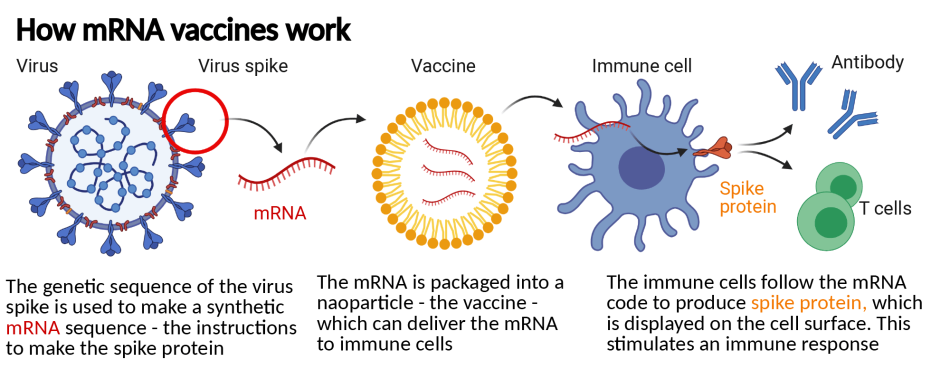Studying a pandemic while living through it
Dr. Morawski and the research team started with a seemingly simple question in the early months of the pandemic.
“We wanted to know if what the textbooks tell us about viruses holds true for COVID: Does having COVID generate an immune response that protects you from future infections?” he says.
The short answer was yes. But as the pandemic evolved, so did the story. The research team continued following their cohort as vaccines became available. They looked at how the protection one gets from vaccination differs from the protection gained from a prior infection, and how prior infection plus vaccination impacts immunity.
They collected data through the Delta wave. They analyzed their findings and zeroed in on hybrid immunity as Omicron started making headlines. All the while, Dr. Morawski and his team lived through each curveball the pandemic threw.
“I was exposed to COVID while flying back to the East Coast for the holidays,” Dr. Morawski says. “I spent the days in isolation with my family, and stayed up all night working on our paper about hybrid immunity. We waited in line for five hours one day to get a COVID test. Studying a pandemic virus while living through it has been a wild time.”
Three Key Takeaways
The team’s hard work paid off when they finalized their data and made the following key findings:
1. mRNA vaccines for COVID-19 work incredibly well
One key part of science is proving that if different scientists ask the same questions, they get the same answers. After other scientists developed a safe and effective vaccine when the virus was brand new, Dr. Morawski’s team proved those findings once again.
“As several other studies have shown, we also showed the mRNA vaccines are really remarkable,” Dr. Morawski says. “A booster dose of Pfizer or Moderna makes that response even stronger and longer-lived.”
2. Vaccination after infection results in strong T cell protection
People who were infected, then got their vaccine, had exceptionally strong protection — protection that reduces the risk of being infected again and makes the risk of severe disease even lower. These people had higher levels of certain immune cells that help fight off the virus.
One interesting finding was about T cells, the immune cells that help your body fight off germs. T cells have two main modes while fighting infections: One that says “go” and another that says “slow down,” like the accelerator and brakes in a car. Knowing when to stop is crucial, otherwise the T cells keep fighting even after an infection is gone. This can cause deadly inflammation. People who were infected then vaccinated had T cells with a particularly good balance of parts that say “go” and “slow down”
“The T cell finding was unexpected but very cool,” Dr. Morawski says. “T cells are important because they keep offering protection, even if virus-fighting antibodies start to wane.”
3. Booster shots improve protection even more
While researchers found that having the virus then getting vaccinated provides significant protection, booster shots offered additional protection for people who hadn't previously had the virus.
“A booster shot helped close the gap between people who had a prior infection and those who had been vaccinated but had not had COVID,” Dr. Morawski says.
People who had COVID-19 and then got vaccinated had the strongest protection, but this does not mean people should seek out infection for additional protection. Additionally, this study looked at data from people who were infected, then vaccinated, not people who were vaccinated then infected.
"This virus is unpredictable and outcomes are variable," Dr. Morawski says. "No one should invite this infection upon themselves, vaccinated or otherwise."
Continuing to live in a world with COVID-19
More than two years in, COVID-19 is still part of life. Dr. Morawski and his colleagues will continue to examine crucial questions about how vaccines and prior infections will protect people in a world with COVID-19.
“COVID is not leaving us,” Dr. Morawski says. “It’s likely to become a seasonal infection that we’ll continue to live with and vaccines will provide a base layer of protection. It has been incredibly impactful to be part of a team working to understand this virus. BRI’s advanced tools and deep knowledge of the immune system will be crucial for understanding how our protection evolves, and if and how we need to update vaccines to keep our communities safe moving forward.”





